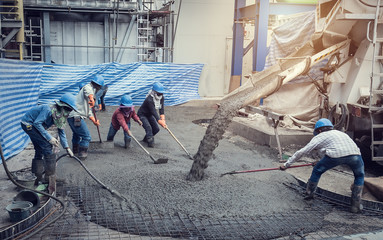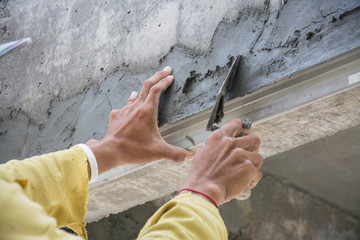Deck builder are well-versed in various design possibilities, including pergolas, covers, gazebos, and outdoor kitchens. They also understand structural integrity and load-bearing requirements.
They can save you money in the long run by preventing costly repairs. They also work within a defined timeline, which eliminates the stress of unforeseen complications that can plague DIY projects.

When you’re looking for a deck builder, experience is key. You want someone in the business for years if not decades. Over the years, they’ve refined their processes, resulting in a more efficient construction process that saves time and money. Plus, they’re familiar with local building codes and regulations, which helps ensure your new deck meets all local requirements.
The experience of a deck builder also includes expertise with various hand and power tools. This helps them construct multiple structures, including pergolas, porches, and patio covers. In addition, a good deck builder is also skilled at designing a custom outdoor living space that suits your lifestyle. They can even help you select the best furniture for your deck.
Another important aspect is whether the deck builder can provide references from previous clients. A reputable company will have satisfied customers who can attest to their craft and customer service skills. Looking elsewhere is best if a builder is reluctant to give you these references.
Decks take a lot of abuse from Mother Nature throughout the year. As a result, they need regular maintenance to maintain their appearance and functionality. Professionals will help you choose the right materials for your deck and provide expert repairs when needed. They will also help you with the permitting process and inspections. This will ensure your deck is built to code and safe for your family. In addition, they can recommend the best cleaning agents to keep your deck in tip-top condition. Then, you can enjoy your beautiful outdoor space for many years!
It is a good idea to choose licensed contractors for your decking project. These professionals are committed to quality craftsmanship and use premium materials that will last years. They are also familiar with local building codes and regulations. In addition, licensed contractors are often insured in case something goes wrong during the construction process. This protection is essential for homeowners who want to avoid paying expensive repairs or lawsuits in the event of an accident.
Most cities require building permits for decks. The process involves submitting a building plan, schedule inspections, and other documents. The city may visit the site to see the construction work progress and ensure safety.
A building permit also ensures that the deck meets fire safety requirements. It must be far enough away from other buildings to prevent fires that can spread rapidly. It must also comply with zoning regulations and homeowner association rules. Some cities even require a set distance between properties for aesthetic reasons.
Homeowners who build unpermitted decks are subject to fines and lawsuits and are sometimes even asked to demolish them. In addition, the deck can cause damage to the house if it is not built properly, and the city may not cover the cost of any repair or replacement.
Building projects that exceed a certain value can only be carried out by licensed builders. A person with a Domestic Builder – Limited (DB-L) license can carry out several building projects, including decking. If the building project is larger, it must be overseen by a Domestic BuilderManager (DB-M) or a Nominated Supervisor with a Domestic BuilderUnlimited (DB-U) license.
In addition to a license, reputable deck builders will have general liability insurance. This type of business insurance is necessary to protect the company against financial losses caused by unforeseen events. It also provides peace of mind for clients, as they know the contractor is prepared for any unexpected incidents.
Another important piece of insurance a deck builder should have is workers’ compensation. This covers medical bills and lost wages if an employee is injured. It’s also a requirement in many states.
Finally, a deck builder should have commercial auto insurance. This coverage includes work vehicles like vans, pick-up trucks, and box trucks. This will protect the business in case of an accident on the road or while the car is parked at the job site.
Construction is messy and hazardous, so contractors must be properly insured. The insurance should cover property damage, bodily injury, and general liability. It should also cover the cost of a cleanup in the event of a spill or any other unforeseen mishap.
Finally, it would be best if you always ask your contractor about a permit. Depending on where you live, the type of deck you’re building, and its size, you may require a license to begin construction. If you don’t have a permit, your city or town could shut down construction until you obtain one. This is an inconvenience and can lead to delays in the project. So, take the time to research your local laws and check with your zoning department or office.
Building a deck isn’t as simple as it sounds, and mistakes can seriously impact the safety and functionality of your backyard living space. From structural issues to shoddy craft, you must choose the right contractor. If you’re looking for a professional contractor that prioritizes quality and craftsmanship, look for standard services like providing estimates and licensing, offering a warranty on their work, having transparent pricing and payment plans, and being personable and communicative.
Specialized contractors understand the ever-changing codes and manufacturer restrictions that affect how your deck is built. General contractors may not keep up with these changes, so hiring a specialist ensures that your project will comply with local regulations and be covered by the manufacturer’s warranty.
It’s also a good idea to find a contractor willing to obtain the necessary building permits on your behalf. This can save you a lot of time and hassle. Some contractors will even provide this service for free as an incentive to earn your business.
The right deck builders aren’t just constructing a surface; they’re crafting an environment that accentuates your home and lifestyle. By prioritizing experience, reputation, licensing, design flexibility, material quality, transparent pricing, project management, environmental considerations, communication, and warranty offerings, you can be sure that your outdoor living space will exceed your expectations.
A good deck builder will review every project detail with you. This means they’ll talk about the materials, measurements, and other important elements of your deck construction project. They’ll also answer any questions you may have.
A professional deck builder will take their time to plan each step of the process and check for any potential problems. They will also keep you updated as the project progresses. This allows you to make changes and corrections if necessary without affecting the overall outcome of your deck.
The best way to find a good deck builder is by asking for references from previous clients. This will help you decide if they’re the right fit for your project. It would be best to ask for photos of previous decks they’ve built. This will give you a better idea of their craftsmanship and attention to detail.
Look for deck builders with a lot of positive reviews. These indicate that their customers were happy with the results and enjoyed working with them. You can also find reviews by searching online for local deck builders. When doing this, turn your location on so you can get search results catered to your area.
Deck building services are typically elective, meaning they’re not necessarily essential for a home. However, if you enjoy hosting parties and gatherings, a new deck can enhance your backyard and increase your space for entertaining guests. The cost of a new deck can vary, but the most affordable option is choosing a simple design to minimize material costs and construction time.



